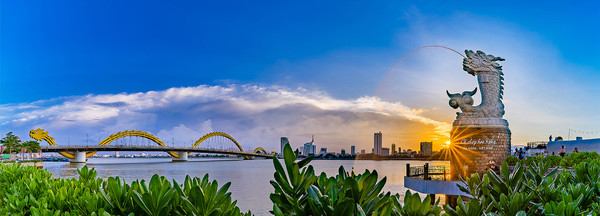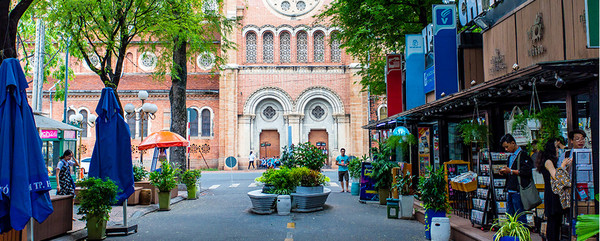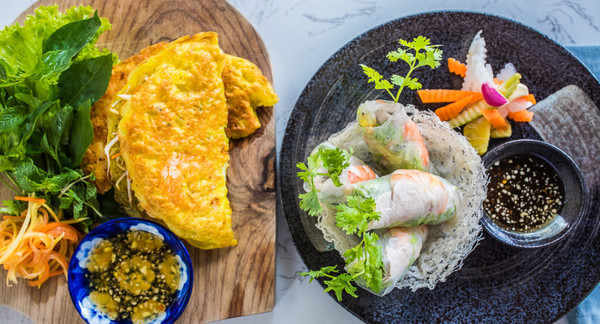
Overcoming many difficulties, Vietnam, a poor country ravaged by war, has earned the world’s admiration for its resilience, not only in the fight for its independence, but also in its period of national development, and in the battle to repel the COVID-19 pandemic while maintaining its economic growth. In August 2020, the Economist ranked Vietnam in the top 16 most successful emerging economies in the world. This accomplishment was made possible by the effort of both the political system and the entire Vietnamese nation after 5 years of implementing the Resolution of the 12th National Congress of the Communist Party of Vietnam on the Socio-Economic Development Plan.

In a single 5-year term (2016-2020), Vietnam has made a breakthrough with achievements in many fields, becoming a "rising star" in Asia.
Vietnam has maintained a stable macroeconomy while keeping inflation low. The economic annual growth of Vietnam in the 2016-2019 period was relatively high, averaging 6.8% per year. Vietnam's sustainable development index in 2020 improved by 39 places compared to 2016; ranked 8th among the world's best economies to invest in. The living standards of Vietnamese people in recent years have been continuously improved. According to the United Nations Development Program (UNDP), Vietnam has created a "legend" with regards to poverty reduction, by reducing the national poverty rate from 10% in 2015 to less than 3% in 2020.
In particular, 2020 is considered the most successful year for Vietnam. The country became a “model” all over the world for preventing the spread of the COVID-19 pandemic while maintaining macroeconomic stability. While economies around the world were seriously affected by the pandemic, the Vietnamese economy demonstrated its extraordinary ability by achieving a growth rate of 2.91%, the highest among Southeast Asian countries. Vietnam ended the year 2020 and the 5-year term 2016-2020 in the context of stable socio-politics; national defense and security maintained and strengthened; diseases under control; economic growth among the highest in the world.

The steadfast leadership of the Vietnamese’s Communist Party and the Government, combined with the solidarity and unity of its people, contributed to this “victory” for Vietnam.
In addition to the core and constant political task of maintaining peace and national independence, creating a solid foundation for the stable development of the country, during the 2016-2020 period, in the context of rapid international integration, the Communist Party and Government of Vietnam advocated for expanding economic integration, foreign affairs, promoting multilateralization and diversification to bolster the strong development of the country.
At the 12th National Congress of the Communist Party of Vietnam (2015), objectives on proactive international and regional economic integration and specific strategies and tasks were discussed and approved. On that basis, in the role of Non-Permanent Member of the United Nations Security Council and the rotating Chair of ASEAN (2020), Vietnam has been very active in international activities; excelling in promoting peace and multilateralization; demonstrating its role of connecting, strengthening cordial and cooperative relations and deepening the level of trust among ASEAN countries and partners. The Government of Vietnam has also created breakthroughs in international economic relations over the past few years by signing 5 and implementing 4 Free Trade Agreements (FTA), contributing to Vietnam's economic growth and integration, whilst enhancing Vietnam's reputation, role and prestige on the international stage.
In addition, the Government of Vietnam has also focused on improving the quality of economic growth, productivity and competitiveness; promoting industrialization, modernization of the country and administrative reform. As a result, by 2018, more than 50% of business conditions and administrative procedures in Vietnam were simplified, which helped the country improved 20 places in business environment, and 10 places in terms of competitiveness in global rankings.
While the COVID-19 pandemic raged, extensively changing the global social living conditions, reversing the development process of countries around the world, in Vietnam, a country still fraught with limitations in healthcare, the Vietnamese Government has succeeded in controlling the number of cases and minimizing the number of deaths. From the very beginning of the epidemic crisis, the Vietnamese Government, on one hand, took drastic measures to inspect, localize and quell the spread of the epidemic. On the other hand, the Government quickly proposed urgent solutions to remove difficulties for production and business, ensuring social security. Adding to that was the solidarity of the entire Vietnamese people and their spirit of "fighting the epidemic like fighting the enemy", effectively implementing methods to prevent the spread of the disease at the request of the Party and Government of Vietnam. As a result, by the end of 2020, Vietnam has fulfilled its dual goal of confronting the pandemic while simultaneously developing the economy, and is considered as one of the few countries that effectively controlled the epidemic, in a timely fashion, with low costs.

The 13th National Congress: Creating new forces to continue Vietnam’s development
The COVID-19 pandemic presents both challenges and opportunities for economic recovery in the long term. In order to adapt in this period, the 13th National Congress of the Communist Party of Vietnam set the target that by 2025 Vietnam would be a developing country with a modern industry, surpassing the low-to-medium income.
Also at this Congress, 12 groups of solutions for sustainable socio-economic development were passed, notably the Party and Government of Vietnam advocation to maintain its current stances and policies, opening doors to the outside world and attracting foreign investment as the driving force for economic growth; expanding and diversifying export markets, diversifying import partners, avoiding dependence on one partner; prioritizing imports of high-tech machinery and equipment. Secondly, to participate in the 4th Industrial Revolution, Vietnam will promote the digital transformation of the country; enhancing the development of technology, science, and high-quality human resources. The Government of Vietnam advocates the popularization of technology and the eradication of technological ineptitude for the population; promotes the education of information technology and digital technology skills in education and training. In addition, the Vietnamese Government will remove barriers on the legal system as well as economic and financial policies for science, technology and innovation activities; build specific and distinguished mechanisms and policies to make science, technology and innovation the main driving force for economic growth...
International experts and scholars evaluated these groups of development strategies in Vietnam as correct and appropriate. Yonhap and a number of international news agencies expected that, with a series of free trade agreements and increasing potential to attract investors, in the next 5 years, Vietnam will flourish in its role as a key manufacturing hub for global corporations, including the Samsung conglomerate.
In the context of a rapid development in the comprehensive strategic cooperative partnership between Vietnam and South Korea, with Korea always leading in terms of foreign direct investment in Vietnam, Vietnam being the fourth largest trading partner to Korea, and the two countries aiming to increase bilateral trade to 100 billion USD by 2022, the prosperity of Vietnam's economy will become the foundation for the shared prosperity of both countries.
In the spirit of looking forward to the future and respecting one another for the steady development of bilateral relations, the task for both countries is to expand, deepen more effectively the strategic Vietnam - Korea partnership. Korea is a developed country with great capacity in capital, science and technology, and requires a young market to continue its developing momentum. Meanwhile, Vietnam is a country that is reforming, dynamic and proactive in international integration. These are advantages for the two countries to expand cooperation in investment, trade and cooperation in science and technology. It can be said that business cooperation and personel exchange is a solid platform for the bilateral relationship to continue to develop.

